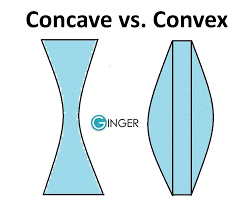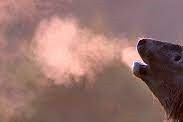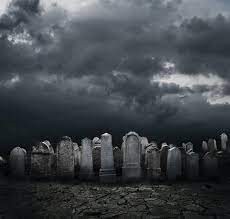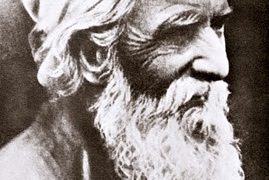Before we start this section we must point out that when `Abdu’l-Bahā was asked if he knew everything, he had answered:
No, I do not know everything. But when I need to know something, it is pictured before me.
Reference: Stanwood Cobb, Memories of `Abdu’l-Bahā in In his Presence: Visits to `Abdu’l-Bahā (Kalimāt Press, 1989), p. 60.
These words are sometimes labeled by Baha’is as being pilgrims notes that cannot be verified. Shoghi has done us a favor and has verified these words at least in the sense that `Abdu’l-Bahā is unerring, has superhuman knowledge, and his words are valid like his father:
Little wonder that from the same unerring pen there should have flowed, after ‘Abdu’l-Bahā’s memorable visit to the West . .
Reference: Shoghi Effendi, The World Order of Bahā’u’llāh, p. 75.
He is, and should for all time be regarded, first and foremost, as the Center and Pivot of Bahā’u’llāh’s peerless and all-enfolding Covenant, His most exalted handiwork, the stainless Mirror of His light, the perfect Exemplar of His teachings, the unerring Interpreter of His Word . . . He is, above and beyond these appellations, the “Mystery of God”—an expression by which Bahā’u’llāh Himself has chosen to designate Him, and which, while it does not by any means justify us to assign to Him the station of Prophethood, indicates how in the person of ‘Abdu’l-Bahā the incompatible characteristics of a human nature and superhuman knowledge and perfection have been blended and are completely harmonized.
Reference: Shoghi Effendi, The World Order of Bahā’u’llāh, p. 134.
That ‘Abdu’l-Bahā is not a Manifestation of God, that He gets His light, His inspiration and sustenance direct from the Fountain-head of the Bahā’ī Revelation; that He reflects even as a clear and perfect Mirror the rays of Bahā’u’llāh’s glory, and does not inherently possess that indefinable yet all-pervading reality the exclusive possession of which is the hallmark of Prophethood; that His words are not equal in rank, though they possess an equal validity with the utterances of Bahā’u’llāh . .
Reference: Shoghi Effendi, The World Order of Bahā’u’llāh, p. 139.
Shoghi clearly states that `Abdu’l-Bahā is unerring, has Superhuman Knowledge, and his words are equal in validity with those of Bahā’u’llāh. Now let us test this unerring, super human, and valid knowledge:
آنچه در ادامه می خوانید
Spontaneous Generation
Spontaneous generation is the incorrect belief that non-living things can give rise to living organisms. For instance, the belief had been held for years that maggots (fly larvae) were created due to the decay of meat. These beliefs were effectively disproved by Louis Pasteur’s experiments in the nineteenth century. Apparently, the same `Abdu’l-Bahā that preached about the accordance of religion with science and reason at every opportunity, had not heard about these scientific discoveries:
Know that the creatures are of many kinds . . . some are created in wombs others [are created] by spontaneous regeneration (khalq al-sā`a) and come into existence by themselves, such as the animals that are created in fruits, and a group are created in eggs. These are the types of creation of [living] things.
Reference: `Abdu’l-Bahā, Makātīb (Egypt), vol. 2, p. 24.
Convex and Concave Mirrors

`Abdu’l-Bahā believes that a convex mirror, like a concave mirror, focuses light rays in a single real point. When explaining the necessity of focusing thought in one point he uses the following parable:
Like sunlight that does not have a complete effect on a flat mirror, but when it shines on a concave or convex mirror, all its heat is focused in a single point and the heat of that point will become stronger than fire.
Reference: `Abd al-Ḥamīd Ishrāq Khāwarī, Ayyām tis`a, p. 324.
This is while it has been proven centuries ago that a convex mirror, as opposed to a concave mirror, spreads light rays apart and does not create heat by focusing them. Some have defended Abdu’l-Bahā’s words by claiming that he meant a virtual focus; this is unacceptable because he clearly states that the heat in the focus point will be hotter than fire and this phenomena only occurs in a real focus point.
Animal Breath

From the breath of animals a watery element (`unṣur) spreads that is nowadays called hydrogen and carbon and this gives life to plants and from plants and trees a fiery element spreads that is nowadays phrased as oxygen and is the cause of animal survival.
Reference: `Abdu’l-Bahā, Makātīb (Egypt), vol. 1, p. 459.
What `Abdu’l-Bahā apparently means by the element that “gives life to plants” is carbon dioxide. Carbon dioxide is not an element, is not called “hydrogen and carbon,” does not have hydrogen in it, and is not watery. It is a gaseous compound.
The Reason Humans Have Canine Teeth

`Abdu’l-Bahā says:
Thou hast written regarding the four canine teeth in man, saying that these teeth, two in the upper jaw and two in the lower, are for the purpose of eating meat. Know thou that these four teeth are not created for meat-eating, although one can eat meat with them. All the teeth of man are made for eating fruit, cereals and vegetables. These four teeth, however, are designed for breaking hard shells, such as those of almonds.
Reference: Helen Bassett Hornby, Lights of Guidance: A Bahā’ī Reference File, chap. XXIV, no. 1007.
`Abdu’l-Bahā claims that the four human canine teeth have been created for breaking nuts like almonds! Firstly, breaking nuts using teeth are dentists’ (and parents’) worst nightmares! The easiest way to chip one’s canines is to try to break open a nut with them.
Secondly, even if one does want to make the unwise choice of breaking nuts with their teeth, they will go about doing so using their molars, not canines, for the canines are in no way suited for this task.
Death Occurs After Decomposition

When `Abdu’l-Bahā wants to explain that the soul is immortal, he utters these words:
The whole physical creation is perishable. These material bodies are composed of atoms; when these atoms begin to separate decomposition sets in, then comes what we call death. This composition of atoms, which constitutes the body or mortal element of any created being, is temporary.
Reference: `Abdu’l-Bahā, Paris Talks, pp. 90–۹۱٫
In most if not all cases, death occurs before decomposition. `Abdu’l-Bahā claims the opposite, and says first material bodies start decomposing then death occurs!
Blessed Animals Don’t Have Patriotic Quarrels

`Abdu’l-Bahā says:
The blessed animals engage in no patriotic quarrels. They are in the utmost fellowship with one another and live together in harmony. For example, if a dove from the east and a dove from the west, a dove from the north and a dove from the south chance to arrive, at the same time, in one spot, they immediately associate in harmony. So is it with all the blessed animals and birds. But the ferocious animals, as soon as they meet, attack and fight with each other, tear each other to pieces and it is impossible for them to live peaceably together in one spot. They are all unsociable and fierce, savage and combative fighters.
Reference: `Abdu’l-Bahā, Bahā’ī World Faith—Selected Writings of Bahā’u’llāh and `Abdu’l-Bahā (`Abdu’l-Bahā’s Section Only), pp. 287–۲۸۸٫
We don’t know what a blessed animal is, but if `Abdu’l-Bahā had paid close attention to pigeons and doves he would have seen that they too engage in quarrels and feather-plucking for a variety of reasons. Furthermore there are many ferocious animals that live peacefully with each other in large groups and packs. Lions, wolves, and dogs are obvious examples.
`Abdu’l-Bahā believes that even wolves and dogs hunt alone and cannot live in groups:
Among the beasts of prey each kind liveth apart from other species of its genus, observing complete antagonism and hostility; and whenever they meet they immediately fight and draw blood, gnashing their teeth and baring their claws. This is the way in which ferocious beasts and bloodthirsty wolves behave, carnivorous animals that live by themselves and fight for their lives . . . dogs, wolves, tigers, hyenas and those other beasts of prey, are alienated from each other as they hunt and roam about alone.
Reference: `Abdu’l-Bahā, Selections From the Writings of ‘Abdu’l-Bahā, p. 287.
The Sun is Stationary, Fixed, and Ever Occupies the Same Space

The animal cannot become aware of the fact that the earth is revolving and the sun stationary. Only processes of reasoning can come to this conclusion. The outward eye sees the sun as revolving. It mistakes the stars and the planets as moving about the earth. But reason decides their orbit, knows that the earth is moving and the other worlds fixed, knows that the sun is the solar center and ever occupies the same place, proves that it is the earth which revolves around it.
Reference: `Abdu’l-Bahā, The Promulgation of Universal Peace, p. 417.
It is a known fact that the sun—like other stars in the Milky Way galaxy —is in constant motion and it does not occupy the same place.






